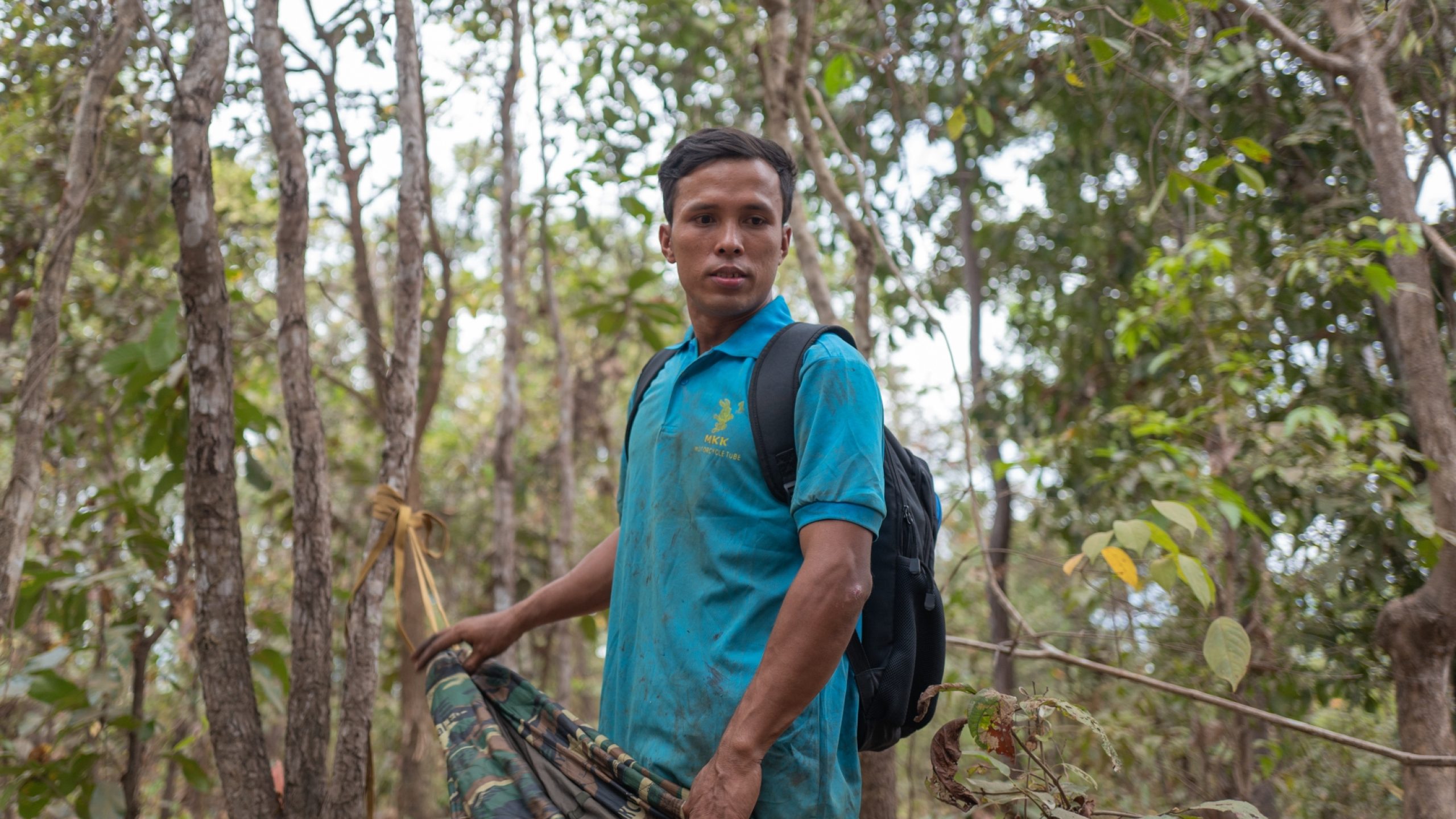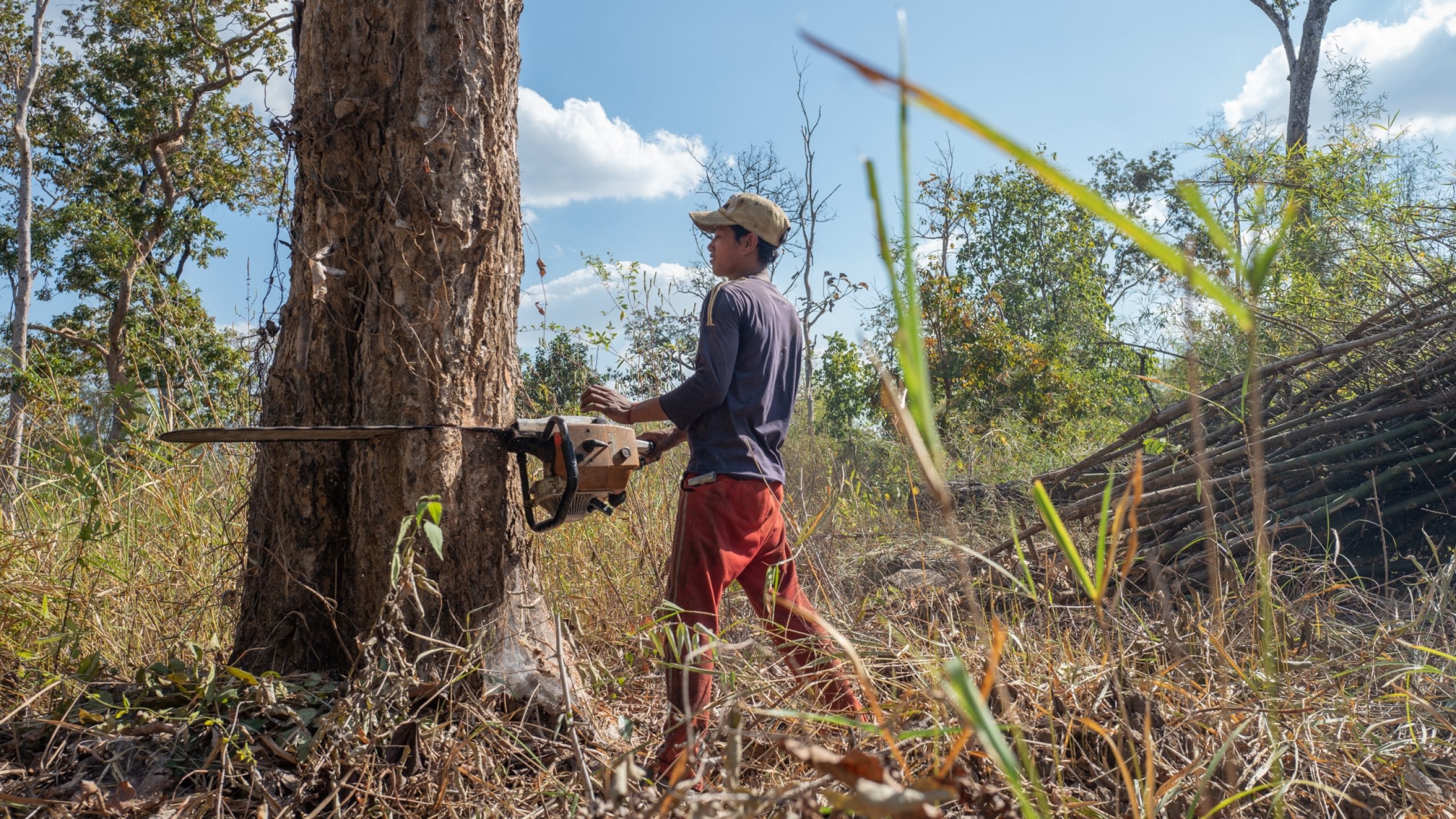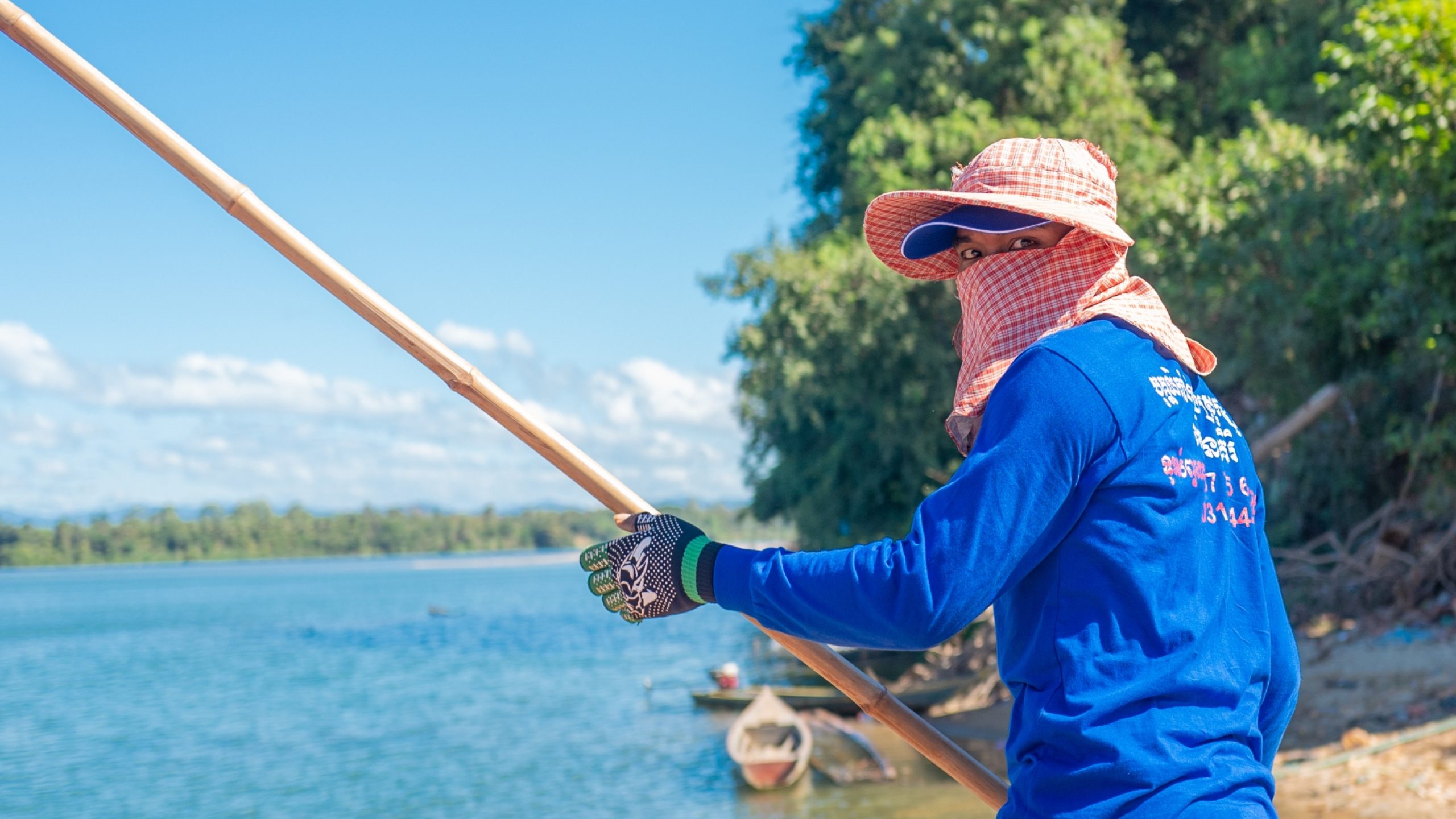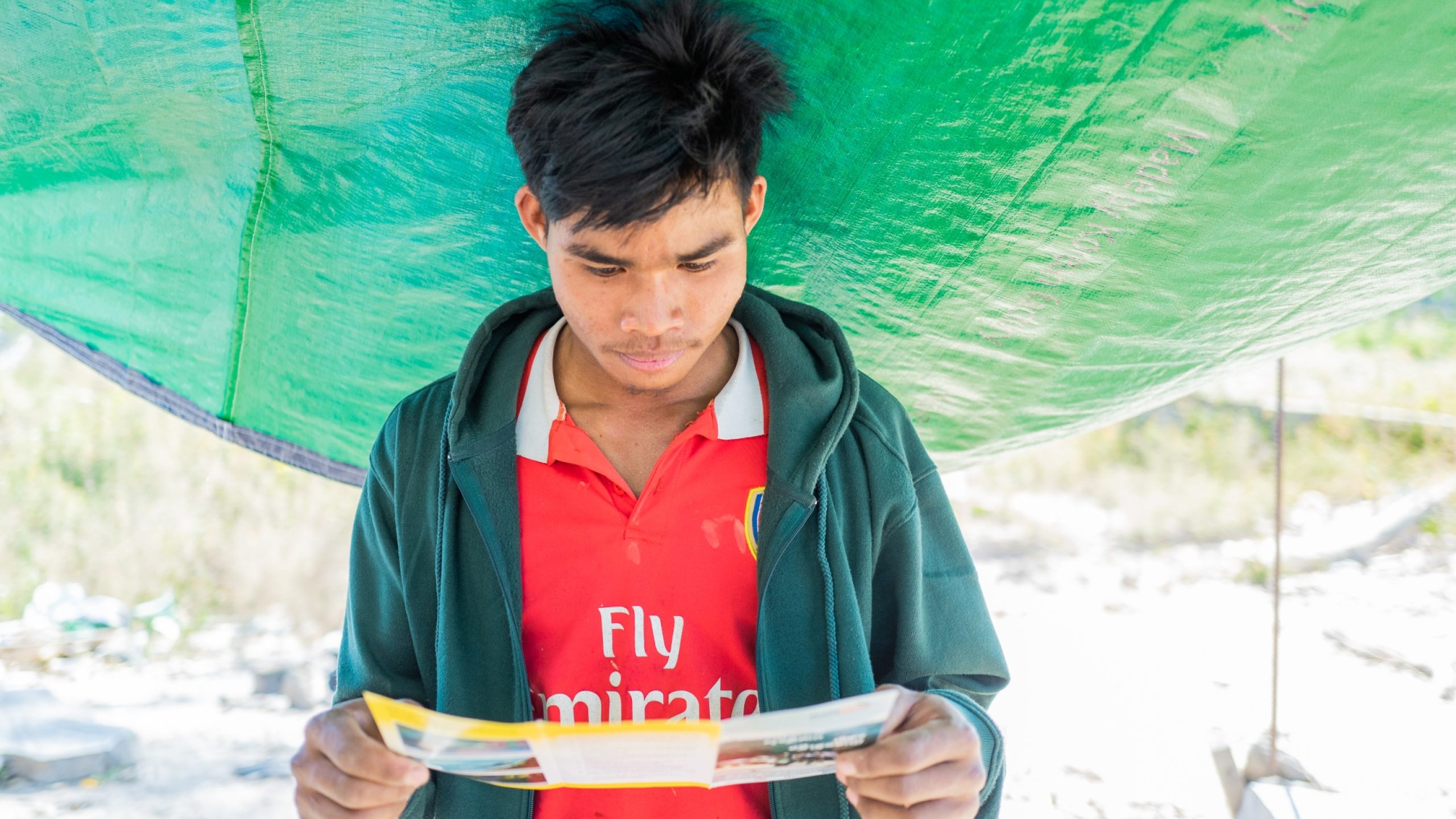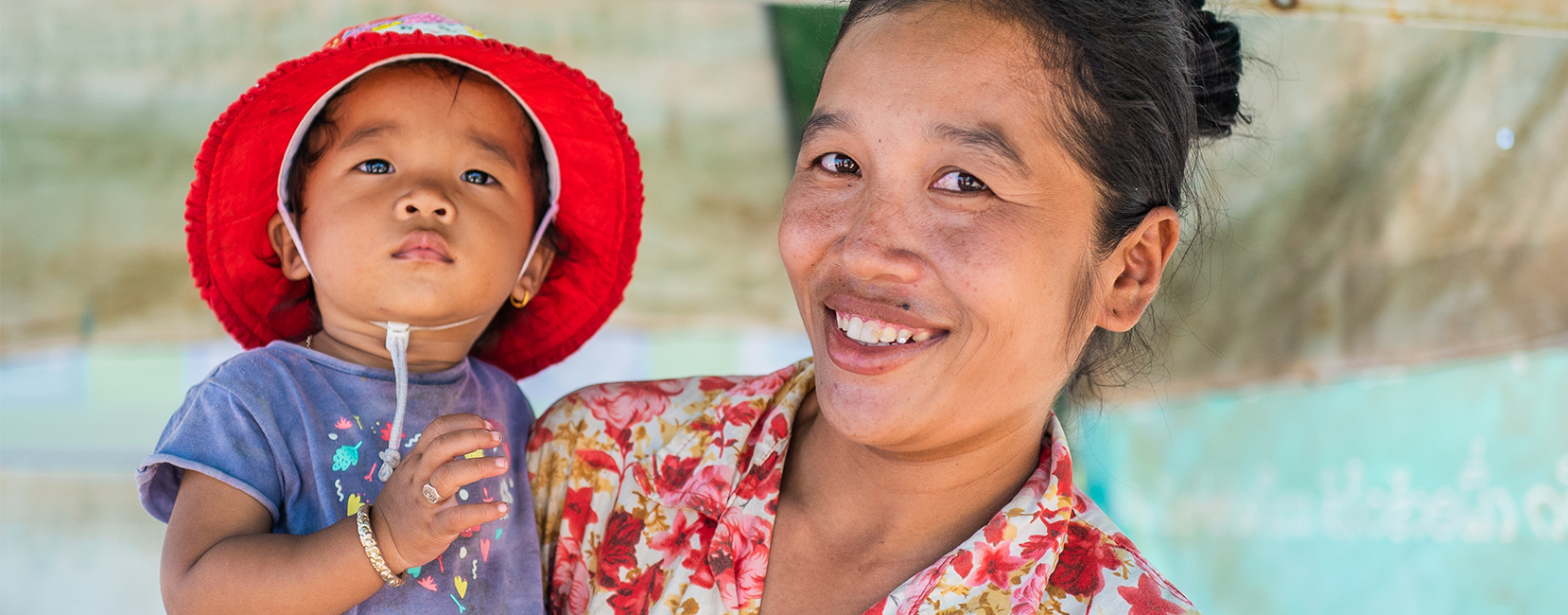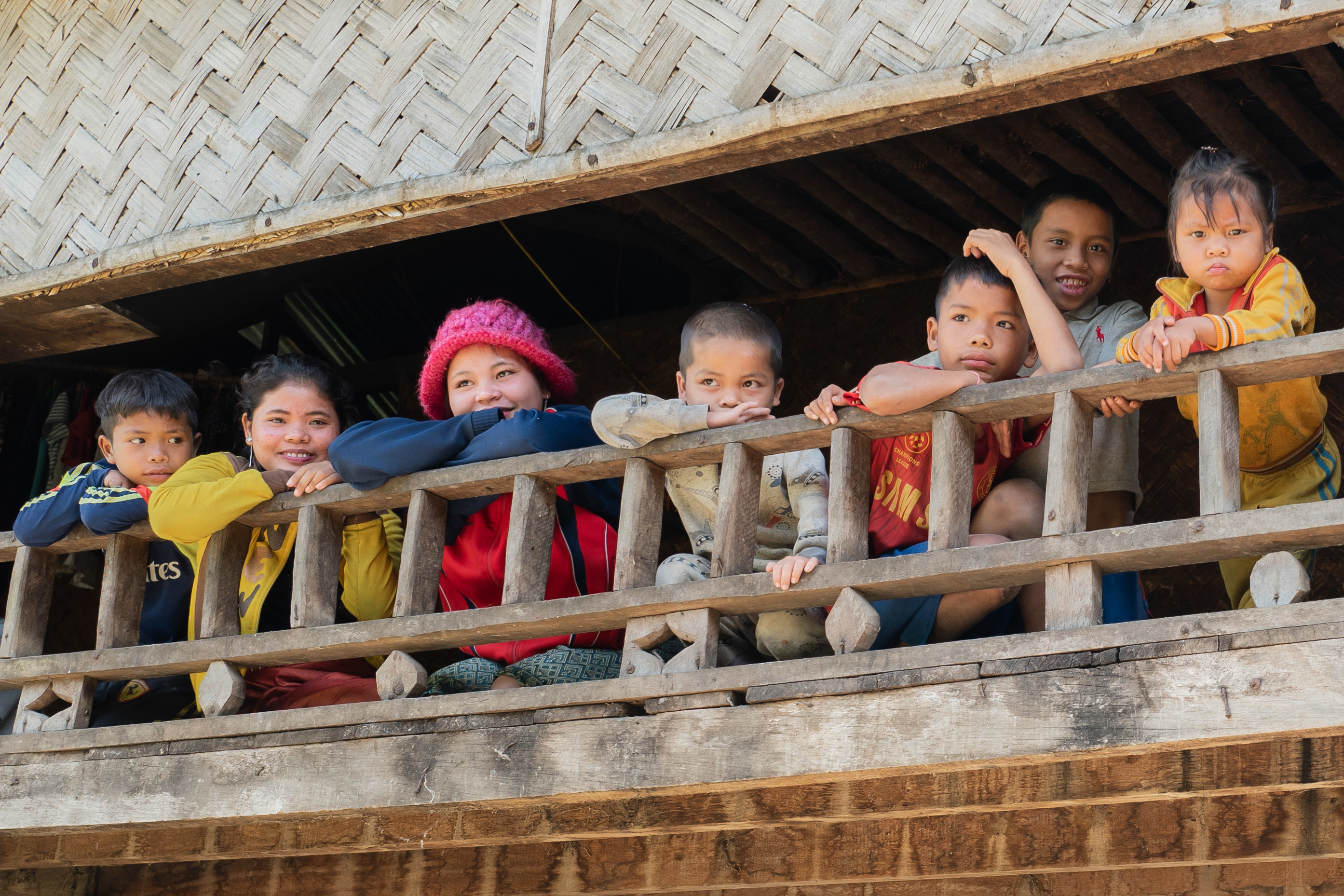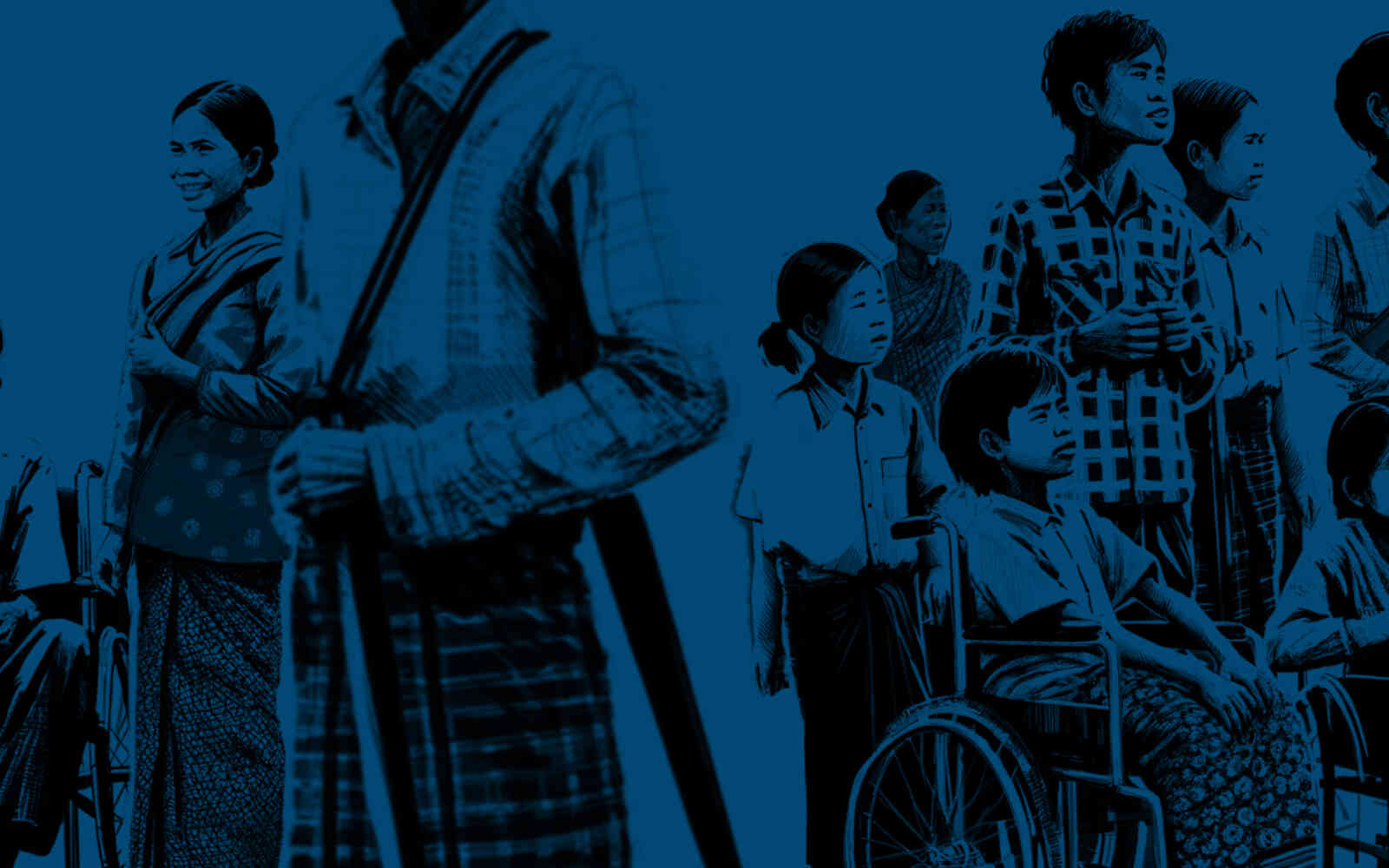The United Nations Office for Project Services (UNOPS)

Cambodia’s health volunteers tackle malaria head-on
Cambodia’s northeast is home to many different ethnic groups and cultures. Its resource-rich and sparsely populated forests also attract many migrants from other parts of the country looking for means of livelihood.
The forests are also hotbeds for mosquitoes, making those living and working here the most at risk group of catching malaria. These populations are often isolated from health services and can be extremely difficult to access, which makes eliminating the disease extremely challenging. Working closely with communities is crucial in the fight against malaria and local volunteers are being trained to test and treat the disease on the spot.
Leung Safei and No Lima
Leung Safei and his wife No Lima moved to Stung Treng in 2008 to build their family home and a small cashew nut plantation. They are members of the Cham ethnic group and migrated to the area from the central lowlands of the Mekong river as there was no land available to build their home. Lima and Safei’s village, which is home to 30 people, is 20 kilometers from the nearest health centre and is only accessible by boat and motorbike.
Photos
- ©UNOPS/Elise Laker




Almost one year ago they received training to become malaria health volunteers. Their work involves providing screening, treatment, referral and health education for communities living and working in the area.
“People have limited understanding. Some people provide offerings to the spirit. They believe they get malaria because of the spirit,” says Safei.

Safei travels twice a week to carry out malaria screening and health education among communities working in the forest. A short motorbike ride from his home live the Ka Chork community. They work on a cashew nut plantation in the middle of the forest and the majority do not speak Khmer, the main language spoken in Cambodia. Safei communicates with the community through a translator. When Safei asks how many have had malaria more than once, many raise their hand. Despite the language barrier, thanks to Safei, the community is more aware of the dangers of malaria. Typically there will be two volunteers at every malaria post to ensure there is coverage at all times of the day. When Safei is at work on their plantation, Lima is able to provide testing and treatment.

People understand the symptoms and now know that they can get treated for free.”
Over 5,000 health volunteers have received training to screen and treat malaria in hard-to-reach villages throughout Cambodia. As part of intensified efforts to eliminate the disease, a team of 182 volunteers have been trained to work with the migratory populations and forest goers who are moving around for work.
Ken Sreyleak
Ken Sreyleak, 31. Sreyleak has been working as a mobile malaria worker for nine years in Okouk, a small village bordering Laos. She is proud to support her community and the migrants who move to the area for work. She travels by motorbike to test and screen people for malaria. The poor road conditions make her work difficult, but during her time as a volunteer she has seen a lot of improvement.
Malaria has been decreasing here. On average 70 people used to test positive for malaria every month. Now it’s about 30 people.”

As throughout Cambodia’s northeast region, the most vulnerable people at risk from malaria in Stung Treng are men. In 2018, 74 per cent of all positive malaria cases in the northeast were male. It is typically men who go to work in the forest, thus making them more exposed to the disease.
Pha Neang
In neighbouring Ratanakiri Province, Pha Neang and her family live at the edge of Virachey Forest, one of the largest forested areas in Cambodia. Neang works as a primary school teacher and in her role as a mobile malaria worker, she runs a malaria testing station at an entry point to the forest.

I ask people returning from the forest to have their blood tested. If malaria is detected, treatment will be provided for free.”
She explains how some people must spend most of their time in the forest. “Some people may spend only four or five days at home each month because of poverty.” When cases are more complicated, she refers them to the local health centre for treatment.
Every mobile malaria worker is provided a small monetary incentive for their work. The volunteers must attend one meeting per month to report all the cases they find. They have individual targets of carrying out 30 tests per month on forest workers.

Yuth Hun
Across the Tonlé San River in Koh Peak village, Yuth Hun, 32 has been volunteering as a malaria worker for eight years.
At the beginning I faced several challenges in my work such as gaining people’s trust and also the lack of knowledge about malaria. Over the years I’ve seen this change, which has motivated me even more.”

Poor road conditions and drugs not being in stock are other challenges to people getting treatment in the village and surrounding forest.
Hun’s village is also home to the Ka Chork people and in 2018, 142 people tested positive for malaria. He explains that it’s only in the forests where people get malaria and that by treating people quickly, prevents the disease from spreading to the villages and causing outbreaks.
Preventative healthcare is also an important part of malaria elimination and health volunteers are tasked with distributing insecticide-treated bednets and hammock nets, as well as repellent.




Project details
The Regional Artemisinin-resistance Initiative 2 Elimination (RAI2E) programme is a $243 million regional grant to accelerate the elimination of Plasmodium falciparum malaria in the Greater Mekong Subregion between 2018 and 2020. RAI2E supports increased malaria service coverage for remote populations in border areas and other at-risk populations, as well as case management through health volunteers and strengthening of national surveillance systems.
UNOPS is responsible for managing the funds of the project and providing quality assurance, as well as monitoring and evaluation. The programme is funded by the Global Fund to Fight AIDS, Tuberculosis and Malaria.
The programme in Cambodia is implemented by CARE, Catholic Relief Services, Health Poverty Action, the National Center for Parasitology, Entomology and Malaria Control, Malaria Consortium, Partners for Development and Population Services International.









